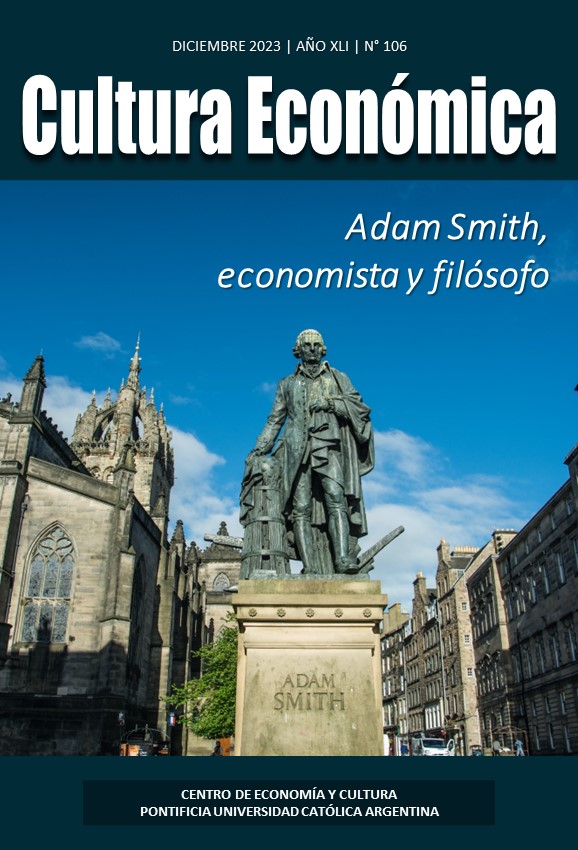The influence of Adam Smith's economic thought on his conception of the virtues
DOI:
https://doi.org/10.46553/cecon.41.106.2023.p7-22Keywords:
Adam Smith, virtues, commerce, meritAbstract
This article argues that Adam Smith's economic thinking influences his moral thinking. We will show that the virtue of prudence is strongly influenced by Smith's economic thought and is part of a new modern morality whose source is commercial activity. In this way, the economic-commercial is moral because the virtues take on characteristics inspired by commercial life. This explains why less grandiloquent virtues such as prudence take centre stage, and virtues such as benevolence lose prominence.
Downloads
References
Dickey, L. (1998). Historicizing the ‘Adam Smith Problem': conceptual, historiographical, and textual issues. Journal of Modern History, 58, 579-609.
Griswold, Ch. (1999). Adam Smith and the virtue of englightenment. Cambridge University Press.
Raphael, D. D. (2007). The Impartial Spectador. Claredon Press.
Rodríguez Braun, C. (2013). Estudio preliminar. En Smith, A., La teoría de los sentimientos morales (pp. 7–35). Alianza.
Smith, A. (1984). The Theory of Moral Sentiments (Glasgow Edition of the Works and Correspondence of Adam Smith, v 1). Liberty Fund.
Smith, A. (2012). Investigación sobre la naturaleza y causa de la riqueza de las naciones. Fondo de Cultura Económica.
Smith, A. (2013). La teoría de los sentimientos morales. Alianza.
Stewart, D. (1998). Relación de la vida y escritos de Adam Smith. Ensayos filosóficos. Ediciones Pirámide.
Downloads
Published
How to Cite
Issue
Section
License

This work is licensed under a Creative Commons Attribution-NonCommercial-ShareAlike 4.0 International License.













